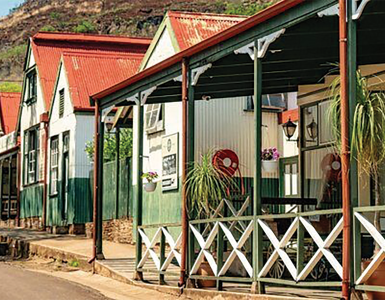INDEPENDENCE: Entrepid fellow makes thousands on a good week
By Bongiwe Mkhwanazi
Self-taught paint maker Lebo Diphoto may be using an impeller attached to a drill to acquire the desired spin for various colours suiting his many clients, in the place of a state of the art paint mixer, but he is making R10 000 on a good week.
The intrepid father of one started his pain business at his home in Meadowlands, Soweto after he had left his job as a driver at a paint making company in Johannesburg in 2013. His duty was to buy paint mixing ingredients, which he later delivered to the firm’s customers. During his free at work, Diphoto used to voluntarily assist his paint mixer colleagues with mixing the various paints into a myriad colours. The knowledge he had gained from this informal training would come in handy when he resigned from his work, two years later, to start his backroom paint making and mixing workshop.
“Paint is not just a colour,” said Diphoto. “It is a material with which we dress our walls. So it is important that you make one that will not erode or fade away after the rain has fallen.” Diphoto, who said this as he was using his makeshift equipment to mix his paints for several hours before the product was finished. He loves the fact that his rubberised paint is water based, meaning that the material has the chemical qualities that ensure its durability and longevity. With no scales to measure ingredients that had included titanium dioxide, extender Pigments, magnesium oxide, silicate Diphoto uses plastic bottles and buckets. To add other ingredients, Diphoto uses a plastic syringes he buys from a local pharmacy. He also teaspoons for measurements and mixing purposes. He told Weekly SA Mirror that all the ingredients, which he scoops from unmarked buckets and bags have to be mixed in a sequence to get the correct textures.
Diphoto’s register company, called Captain Based Paint, employs two male youths who have been working with him for the past six years. “They too do not need to refer to notebooks or computers to get the right measurements,” said Diphoto. “They have learned, just by observing.”
He said, on a busy month, like the festive season, he is able make up to R10 000 in a week. “That is an amount that helps me to buy new stock, as these ingredients are quite expensive,” said Diphoto, whose client base grew through word of mouth. Diphoto and his team also paint houses for a certain fee. For marketing purposes, Diphoto is available on Facebook and WhatsApp. But he feels that, with adequate funding, he could grow his company and training and employ more people. “All I need is funding, so that I can buy the appropriate working equipment, and be able to teach and train the youth, for them to earn a living,” Diphoto said.
High school learners, especially matriculants, as well as newly-qualified graduates who are interested in a career in the mechanical sector, can gain access to education, training and skills development programmes that are offered by the Chemical Industries Sector Education and Training Authority (Chieta). Chieta has set aside R40 million for about 700 Students, including those who could not be funded by the National Student Financial Aid Scheme (NSFAS). In July, the Chieta’s CEO, Yershen Pillay, said the Chieta hopes to increase funding for the youths who were in need, and – to this end – Pillay is calling on the private sector to join this initiative.




























